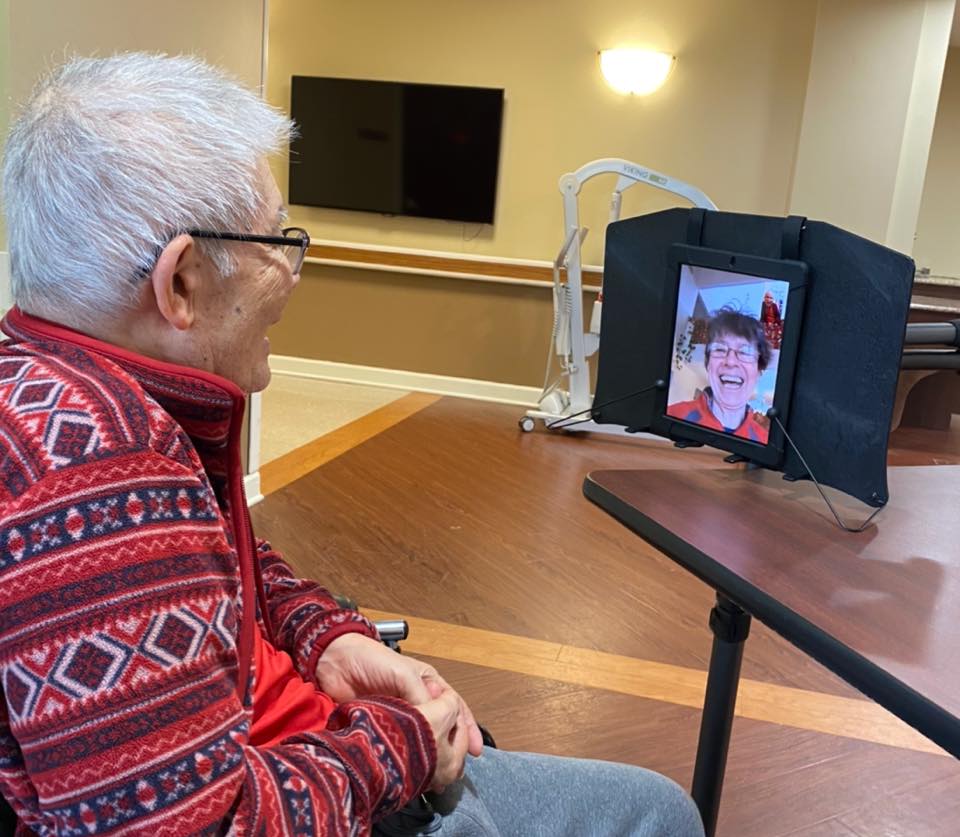
Connecting in the Time of COVID
October 20, 2020
Written By Adam Buckallew
At the outset of the pandemic, many people bunkered down in their homes and self-isolated for safety. Nursing homes and long-term care facilities, where many occupants are elderly and have chronic medical conditions, banned visitors to protect the health of their residents. While the seclusion helped keep the virus out of facilities, it also cut residents off from family and friends.
“That was a struggle for our residents,” says Nabrina Shanks, director of life enrichment at The Bluffs nursing home in Columbia, Mo. “Many of our residents are used to having family visit them every single day. When COVID hit, it completely changed the dynamic of their social and emotional well-being.”
Like many nursing homes, The Bluffs turned to technology to help residents reconnect with loved ones. The facility had two older tablets prior to the pandemic, but they were so old they couldn’t support video chat technology. A grant from the MFA Oil Foundation helped The Bluffs purchase new tablets, which Shanks said gave residents an opportunity “to connect with their families again,” and much more. Residents have used the tablets to participate in online church services, chat with doctors, and even virtually attend weddings.
Aging Best, which serves central Missouri residents age 60 and above, was another organization that received an MFA Oil Foundation grant for tablet purchases. Melissa Schulte, a network coordinator with Aging Best, says as older adults have self-isolated to stay safe, there been an increase in loneliness and depression. The tablets Schulte’s agency was able to buy has given the people they serve opportunities to connect with grandchildren, other family members and friends through video calls.
“It means so much for people to be able to see loved ones laughing and smiling,” Schulte says. “They do not have to miss out on special moments with the people they love.”
Aging Best did not have any tablets or other technology for its clients to make video calls prior to the pandemic, and Schulte says she and her co-workers are excited to provide ways to help older adults combat social isolation. She says many of the older adults she works with, especially those in rural areas, do not have access to technology, and may not be comfortable using a smart phone or social media.
“The tablets allow them to see the faces of those they miss and experience a deeper connection than they can achieve with a telephone call,” Schulte says. “It is easy for older adults to lose touch with the community and current events when they do not have access to technology. The tablets give them an opportunity to stay connected and cope with the effects of social isolation.”

